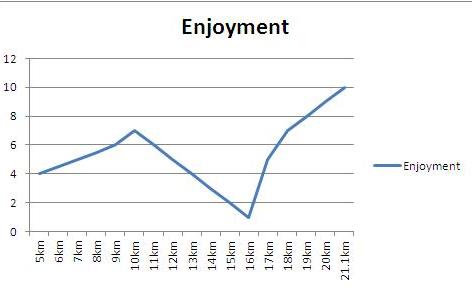I am participating in the 2012 Wordcount Blogathon, which means one post every day for the month of May.
Today’s post is written in observance of Mental Health Awareness Month, which runs through May.
Several years ago, as I sat nursing my newborn baby, I watched a talk show in which Tom Cruise said something to the effect of post-partum depression not being a real condition. All these moms needed, he said, was to follow good exercise and nutrition plans, and they wouldn’t have a problem. He was convinced, he said, because he had done research.
The timing of this talk show, with its rantings by someone who by definition will never know what post-partum depression is like, could not have been worse. I was in the thick of post-partum depression myself at the time, and although my particular brand of it never included a desire to hurt my child, fantasies of my own death were a very real part of my life.
I did not seek help for my condition, and in fact I would never have been treated for it had my family doctor not noticed that something was amiss during a visit for something completely unrelated. I had a whole set of issues with that particular doctor, but I fully credit him for saving my life. That’s how close I was to the edge of the cliff.
The fact that I suffered from post-partum depression at all was no surprise to me. If anything, I had been surprised when it hadn’t struck after the birth of my first son.
Even as a teenager, I was prone to bouts of depression. My parents were not really aware of it, and on the few occasions when someone actually noticed that I was not OK, it was always put down to adolescent hormones.
“You’ll grow out of it,” people told me.
Except I didn’t. My depression continued into adulthood, coming in waves that sometimes threatened to drown me completely. It would hit completely without warning, hang around for weeks or months or even years, and then disappear just as suddenly.
During my teens I blamed hormones. For two decades after that, I blamed myself. I blamed the fact that some unwise choices I made during my college years led to trauma that had a lasting effect.
I didn’t seek help. Of course I didn’t. My depression and everything that went with it was my own fault, right? I didn’t deserve to be helped.
When it came down to it, the mental health issues that I have experienced throughout most of my life – be it post-partum depression, good old garden-variety depression, anxiety, and everything else – have been a source of shame to me.
And that, my friends, is a big problem in our society. Too many lives are destroyed and lost because people suffering from mental illnesses feel too ashamed or embarrassed to seek help. Feelings of unworthiness and self-blame act as barriers to the pursuit of inner peace and happiness.
Tom Cruise sitting on his high horse effectively blaming mothers for a debilitating and often life-threatening condition did not help the cause of the mental health community one little bit.
Eventually, just over a year ago, I finally made the very difficult decision to seek professional help. The road since then has not been smooth. With the guidance of my therapist, I am reliving past traumas and undergoing oft-uncomfortable introspection in search of the roots of the conditions that plague me. But I at least know that I am heading somewhere other than a dead end.
My quest for mental health is by far the hardest thing for me to write about. Because in spite of the steps that I have taken to get help, I have not quite managed to shake the decades-old conviction that this is something for me to be ashamed and embarrassed about.
If I stay silent, though, I remain a part of the problem of the stigma associated with mental illness.
In starting to speak out, however tentatively, I hope to become a part of the solution.
(Photo credit: http://www.flickr.com/photos/militaryhealth/3485865665/. This picture has a creative commons attribution license.)











